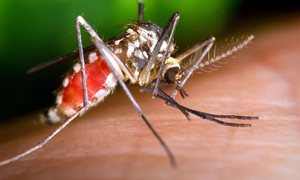 Recently, Jorge Domínguez-Andrés and Mihai Netea, theme Infectious diseases and global health, and colleagues, demonstrate in Cell Metabolism, the importance of the IRG1-itaconate-SDH axis in the development of immune tolerance and trained immunity, and highlight the potential of β-glucan as a tool to revert immune paralysis induced by sepsis.
Recently, Jorge Domínguez-Andrés and Mihai Netea, theme Infectious diseases and global health, and colleagues, demonstrate in Cell Metabolism, the importance of the IRG1-itaconate-SDH axis in the development of immune tolerance and trained immunity, and highlight the potential of β-glucan as a tool to revert immune paralysis induced by sepsis.
Jorge Dominquez-Andrés (photo left)
Mihai Netea (photo right)
The disruption of the bioenergetic pathways of the cells of the immune system leads to a failure to establish a proper response to infectious diseases. Itaconate is an endogenous metabolite that has been widely employed in different industrial processes for decades. However, a growing number of studies have recently shown that this metabolite is able to induce profound metabolic changes in immune cells occur after exposure to pathogens, when it is synthesized as an antimicrobial compound from Krebs cycle intermediates.
In this report, the authors describe that the production of itaconate plays a central role in inducing immunosuppression in human monocytes in the context of sepsis. In addition, they describe that β-glucan, a fungal cell wall component that exerts a long-term upregulation of innate immune function effects on monocytes and macrophages termed ‘‘trained immunity’’, counteracts this effect by maintaining the integrity of different metabolic pathways of the immune cells. By preserving the functionality of these pathways, the treatment with β-glucan was able to reverse the immune paralysis state induced by endotoxins. These data identify itaconate metabolism as a crucial regulatory node between tolerance and trained immunity and makes it an attractive therapeutic target in sepsis, a clinical condition that affects an estimated number of 20 and 30 million people worldwide every year, representing a leading cause of death in both developed and developing countries.
Related news items

Field research on malaria vaccine offers unexpected surprise
23 May 2022Field research on the effectiveness of a malaria vaccine, came up with unexpected results for an international group of researchers including Benjamin Mordmüller of Radboudumc. The vaccine evokes a broader response against malaria proteins than there are in the vaccine.
go to page
What does the shingles vaccine teach us about other vaccines? Investigating the role of trained immunity
27 January 2022 The vaccine for shingles, a condition that causes itching, pain, and blisters, is 90% effective, even in elderly. This is remarkable, since most vaccines offer less protection in elderly. Radboudumc is investigating why this vaccine works so well and how it might help us to develop better vaccines. go to page
Epigenetics: Immunization is passed on to offspring Mice transmit adaptations to infections to next generations
19 October 2021 Does an infection affect the immunization of subsequent generations? It does, according to research now published in Nature Immunology. go to page
Genetic archaeology reveals major changes in the immune system
9 September 2021 Evolution of the immune system unraveled based on ancient DNA go to page
First Dutch professor of infectious disease outbreaks at Radboud university medical center
4 June 2021 Chantal Bleeker-Rovers about research on coronavirus, Q fever and other infectious diseases outbreaks go to page
